Original illustration by Emilie Majarian for The Mary Sue.
Welcome to Bond Girl, a series where we’ll be re-watching and re-evaluating every James Bond film until Spectre’s release.
Content warnings for mentions of sexual assault, violence against women, and brownface.
Quantum of Solace is a good but slightly boring film about revenge.
The first official sequel in Eon Production’s James Bond franchise, Quantum of Solace follows two different quests for revenge. First, James Bond seeks revenge for the death of Vesper Lynd in Casino Royale. While on the hunt for the people behind the events of the previous film, Bond comes into contact with Camille Montes, a Bolivian agent with an axe to grind when it comes to our film’s main bad guys. Throw in the shadowy Quantum organization and a planned coup d’état alongside our usual shenanigans and you’ve got what should have been a very well received Bond film.
However, Quantum of Solace is one of those Bond films that fans argue about. Despite making more than twice its budget, it’s not exactly a movie that gets rave reviews from the start. Many people that I’ve spoken to about the Daniel Craig’s run get excited about Casino Royale and Skyfall but are decidedly noncommittal when it comes to Quantum of Solace.
What is it about Quantum of Solace that leaves Bond fans feeling such meager amounts of love?
Is it the plot? The way that the film essentially has only a little bit to do with Fleming’s canon? Maybe they were confused by the characterization from Bond on through? Is it how Daniel Craig and director Marc Forster essentially threw the script together during the writer’s strike of 2008?
No one I’ve spoken to has ever been able to verbalize the ‘why’ behind their dislike of the film or general annoyance with its position in the franchise. All that I usually get when I talk about James Bond—especially Craig’s films—is a scrunched-up look of disgust and complaints that don’t really make sense.
At the very least, I know why I don’t really like Quantum of Solace.
For me, the movie was just boring and unmemorable. I love Craig. I do. His Bond works for me for reasons I can’t quite verbalize. There’s just something about how that man holds himself that just clicks for me in both Casino Royale and Skyfall. But I’m going to be honest, despite finding things to like about Quantum of Solace, I kept having to pinch myself awake. As far as his movies go, this one wasn’t the most interesting.
At the end of Casino Royale, the one thing that you want for certain is closure. You want him to get to the heart of this mysterious organization and you want him to get some peace for Vesper Lynd. That’s what this film is supposed to give us and it does, but it’s also incredibly tiring to me.
Despite lush scenery, brutal fight scenes, and our new Bond crashing through scenery as if it’s his job, I honestly couldn’t bring myself to care about this movie. There just wasn’t anything about it that I thought really worked and after all this time watching it, I still can’t bring myself to care beyond bare minimums.
That’s not a good sign.
For starters, I have so many issues with movies and television shows that place shadowy organizations as responsible for horrible things in history. I hated it with HYDRA in the MCU, with the Syndicate in Mission Impossible, and now –
I’m so not feeling it with Quantum.
Any conspiracy theorist worth their salt has had the thought. They’ve figured out that somewhere out there is a shadowy cabal of corporations or wealthy figures that make a game out of ruining lives and interfering with politics. In Quantum of Solace we get this twice, first with Haiti and then with Bolivia. On both sides, I’m low-key annoyed because revisionist history in conjunction with actual countries filled with marginalized people?
So not my thing.
But when the revisionist history is essentially rewriting events so that ~mysterious evil organization~ is responsible for all the world’s evils, I tend to get a little grouchy. Why? Because it’s usually a throwaway comment but it’s something that removes responsibility and on some levels, it lessens the impact of the event.
While Quantum member Dominic Greene (played by Mathieu Amalric) talks about Haiti with General Medrano, he talks about the political strife the country is facing in such a dismissive way. I get that yes, Quantum is a shady organization but I honestly feel as if they could have (and also should have) used a different location or even created a fictional island country in the style of Marvel and/or DC comics rather than subject us to this dialogue:
Dominic Green: Well, look at what we did to this country. The Haitians elect a priest… who decides to raise the minimum wage… from 38 cents to $1 a day. It’s not a lot, but it’s enough to upset the corporations… who were here making T-shirts and running shoes. So they called us, and we facilitated a change.
Now I’m well aware that well… they’re evil. This is just one thing that evil characters do. At the same time though, perhaps having our film’s villain say this stuff at the same time that Haiti was going through horrible events was in bad taste? I’m just saying…
I also found it hard to care about many of the characters. For once, Bond was actually the character that I focused on the most. Part of that is because of my complicated Daniel Craig feelings but at the same time, he’s definitely the character in the film that you understand the most. Because we’ve been following him on this mission since the previous film and because we know that this is what it’s been leading up to, we’re riding alongside Bond. He’s slightly more fleshed out in this film and we’re starting to understand his personality better. He’s still rough and kind of cruel, but we also get to see his sensitive side.
Many of the other characters?
They fall flat in a major way or I just outright hate them. Dominic Greene is a smarmy villain with absolutely no redeeming qualities. His cohort General Medrano? Yeah, he’s basically everything that you hate about villains. A deposed dictator, Medrano is also a sadistic murderer and rapist responsible for the violent deaths of our Bond girl’s entire family.
The CIA section chief for South America? Huge jerk. Vesper Lynd’s ‘kidnapped’ boyfriend? Even bigger jerk.
Maybe it’s because I don’t like this movie very much, but almost every character onscreen left me unmoved or angry. I even had issues with the portrayal of women in this film and I wasn’t actually expecting that before I get into those thoughts though, I’d like to get into the topic of revenge and how it plays out with the women in this film.
Revenge isn’t a new topic in the franchise. Every other movie either deals with Bond bucking orders in order to get his revenge or with a woman trying to get revenge on someone that’s wronged her. Most of the time, we focus on Bond, even when the force driving towards revenge is a woman. With Quantum of Solace, we get revenge desires from two angles. We “see” Vesper as the reason behind Bond’s quest for revenge and at the same time, we have Camille Montes seeking revenge for her family.
Both sides are played out and we see how Camille’s path closely follows Bond’s. As with Bond, Camille is nearly single-minded with her quest for revenge. At several points in the film, she flings herself into danger in order to move forward on her path. As a witness to her family’s deaths, she can’t keep herself from moving closer and closer to danger. All she wants, all she can think about, is killing the general and making him pay for her trauma.
Even Bond isn’t as reckless.
However, their actions are so similar. Here we have Bond disregarding everything from his mission to his orders to the potential for his own death in order to avenge Vesper Lynd’s death and drag shadowy Quantum into the light. Camille at the same time, throws caution right out of the window as she pursues Medrano. She sleeps with Greene for the mission, essentially making him into a conquest. She shoots to kill, not to wound, and you sense that for her, nothing matters more than killing Medrano.
Not even her life.
Honestly, I have to admit that I liked Olga Kurylenko as Camille Montes. I probably shouldn’t considering that she’s a Ukrainian actress playing a Bolivian character and that’s something that harkens back to the constant presence of brownface in the early Bond films. However annoying the casting may be, the character is fantastic.
Camille is strong willed, sharp-tongued, and full of enough spite to wound. She’s a good character because she’s so very cutting in her wit and actually incredibly mean. The way that she cuts Greene down to size in the scenes at the party in Bolivia after he attempts to shame her for her sexuality—wow. I decided that I liked her even more.
Dominic Greene: Well, careful with this one. She won’t go to bed with you… unless you give her something she really wants. It’s a shame… because she’s really quite stunning… once you get her on her back.
Camille Montes: [in a snide tone] I wish I could say the feeling was mutual.
It’s glorious.
The film also addresses sex-shaming (claims that Camille slept her way into Greene’s organization and his good graces) and it has the refreshing result of our hero not shaming her. When she asks him if the idea offends him, Bond responds with a casual, “No, not in the slightest.” It makes sense though. Despite his newness to the 007 position, Bond is no stranger than sleeping with the enemy to get what he wants. For the writers to have Bond judge Camille for something that he does on a regular basis would be so hypocritical so I’m thankful that they didn’t go that route.
Honestly, Camille is a great character for this film. While I’m not here for her one hundred percent, I like that she’s framed as equal to James Bond in the narrative. She’s going through the same thing that he’s going through and that she’s also on a path for revenge that could destroy her if she fails. Perhaps she’s more vulnerable, but it works to create a balance and as a character, she feels realistic.
The relationship that Camille has with Bond does have weird moments that can read as paternal, but I adore the fact that they don’t go for the predictable avenue. Camille does what she has to do and then, instead of riding off into the sunset with Bond, she moves on. Simple. Easy. The only embrace that she and Bond shares is a brief one and I’m actually okay with that.
On top of that, I’m always very excited when our film’s Bond girl gets to save the day or shoot someone or well—be a badass because I am predictable like that. Even though we do get scenes of her being incredibly vulnerable as she struggles both with herself and with Medrano, there’s no sense that she’s lost her power permanently. Even in her weakness we get scenes where she struggles against his attempts to assault her and fights and in the end, she shoots Medrano right in the head. She earns her ending.
I do have intense thoughts about the fact that the casting people didn’t bother to try and cast an actual Bolivian actress in the role of Camille though. As with several of our earlier Bond films, we see that they can cast locals as locals up until the moment they need a villain or the main Bond girl. Then? Then the brown makeup comes out.
How is it that nearly fifty years after the first Bond film came out with its yellowface-filled portrayals of Chinese people, we have a modern movie with a main character tanned or made up in order to be darker skinned? Did we magically step back in time to the sixties? Should I be expecting Sean Connery to swagger onscreen at any moment?
Either way I’m annoyed.
And of course, the annoyance doesn’t stop there.
I’m so over the death of Strawberry Fields that it’s ridiculous. She was a relatively minor character, framed as a casualty of Bond’s charm after Greene has her drowned in crude oil. There’s a focus on her innocence and on Bond’s guilt as if it’s truly his fault. It’s just… tiring, to be honest. Out of all of the things to pay homage to in the franchise, we go with this? The violent death of a woman?
Okay.
That’s not bad at all, huh?
I hate that the images that we tend to see as iconic and therefore worthy of homage in nerdy media tend to hinge on the exploitation and/or deaths of women. Leia in the bikini in front of Jabba the Hutt. Jill Masterson’s death in Goldfinger. Basically everything that Joss Whedon does. So much time and effort goes into immortalizing not women, but the horror and pain that they feel when subjugated or prepared to be killed. It makes me so uncomfortable that the film’s director looked at this moment in film from over forty years ago that hinges on the pointless death of a woman and went, “Yeah, this is going to add depth to the film.”
This is in addition to the fact that we see Medrano attempt to sexually assault two women onscreen—a receptionist played by Oona Chaplin and Camilla during her fight with him—so you can see that this movie really doesn’t do well when it comes to women.
I think that these directors need to focus more on why they reuse the themes and tropes that they do when female characters are concerned. Fields’ death certainly serves a purpose, but it is to bring MI6 and M to Bolivia while also reminding Bond that he is a failure that kills everyone he even remotely cares about.
Rene Mathis from the previous film.
Vesper Lynd.
And now, Strawberry Fields.
We get it, Bond kills everything that he touches, everyone that he cares about—
But do we have to reinforce that with the deaths of women?
For me, the best part of Quantum of Solace was the ending. Not simply because it had far too many moments that were uninteresting to me, but because it finally gave us closure. Bond shows up in Russia, finds Vesper’s “boyfriend”, and then hands him off to MI6 before dropping Vesper’s necklace in the snow, the charm no longer necessary. It’s so neat and so simple that it doesn’t actually feel like the ending to a Bond movie.
Overall, Quantum of Solace loses me on many points. The characters, the convoluted plot that doesn’t carry through to the next film. It doesn’t feel as if it belongs. The fact that iconic imagery rarely is kind to women. The fact that this movie really isn’t. While I don’t feel angry the way I have with other films I’ve watched for this review series (looking long and hard at the 1967, Casino Royale), I also didn’t find very much to love about it either. Liking Bond’s sensitivity and the way that Camille is centered as a very significant character isn’t enough to make up for well…everything else.
What I’m looking forward to:
It’d probably be easier to talk about what I’m not looking forward to talking about with Skyfall. I fell so fast for this film that after leaving the theater back in 2012, instead of ripping into it the way that I do every piece of media that I consumed, I could only talk positively about it. I was loud, high-pitched, and desperate for the next film—or at least some good Moneypenny-centric fanfiction to tide me over in the meanwhile.
Seriously, if I could only get someone to watch one Bond film in the universe, it’d be Skyfall.
This is our last Bond Girl post until Spectre comes out in November and it’s going to be a big one.
Stitch writes about comics, nerd history, and ridiculous romance novels when not working frantically on her first collection of short stories. Find her on her blog or on Twitter.
—Please make note of The Mary Sue’s general comment policy.—
Do you follow The Mary Sue on Twitter, Facebook, Tumblr, Pinterest, & Google +?



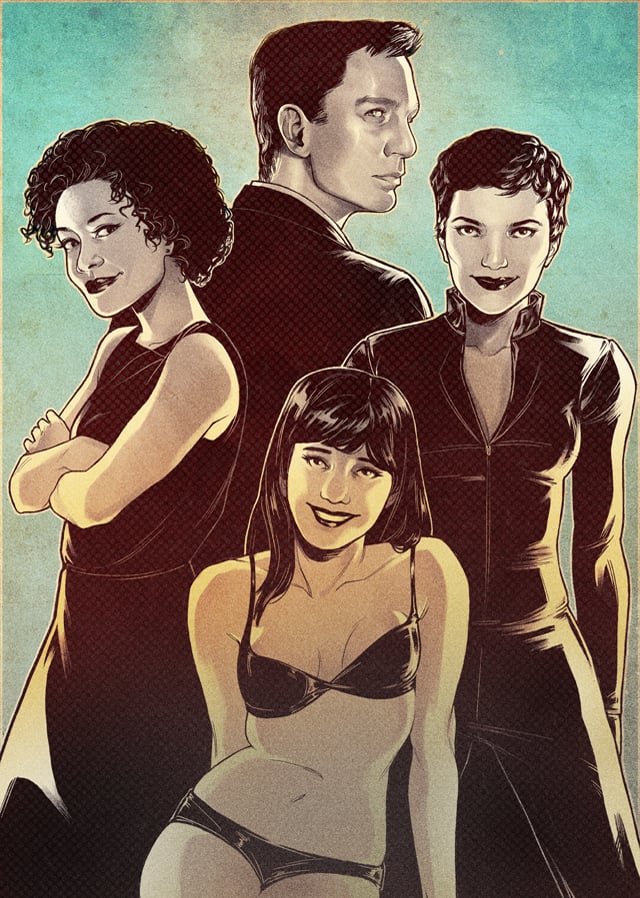
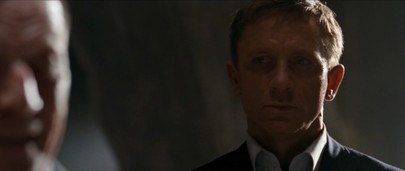
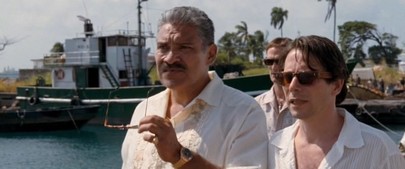
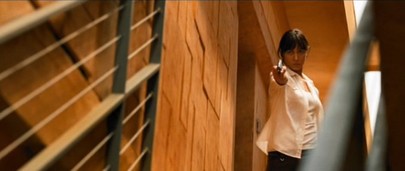
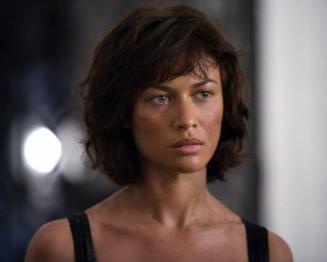
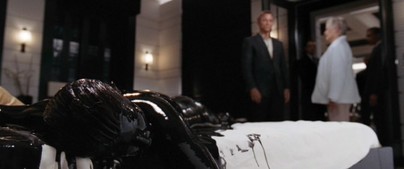






Published: Sep 14, 2015 02:13 pm